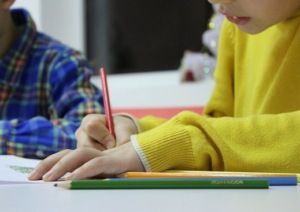News
Socialdemokratiet backtracks on national test for youngest schoolchildren
This article is more than 8 years old.
Testing the pupils in the lower grades at school could be counter-productive and unnecessarily stressful

Too much exam testing can damage your health, some Danish political parties feel (photo: Pixabay/Klimkin)
Back in 2006, Socialdemokratiet and Dansk Folkeparti voted together with the-then Venstre government to introduce a national test for the country’s young public school pupils.
It now appears that Socialdemokratiet at least are having second thoughts. Party chairperson Mette Frederiksen has come out in favour of dropping the test for pupils in the second and third grades, DR Nyheder reports.
READ ALSO: ‘School fatigue’ causing more students to opt out of pursuing higher education
“I think it’s too early for a national test when children are only 8 or 9 years old. I’m not sure that they are ready to go through all that a national test entails,” said Frederiksen.
Stresses and strains
At the moment, there are ten obligatory national tests that children must take from the second to the eighth grades. The tests are supposed to evaluate the child’s ability in different subjects in order to give teachers an idea of the academic level of each individual.
“I think we should be honest and say that maybe we’ve created rather an unhealthy performance-driven culture amongst our children and young people and it could be potentially dangerous, so we ought to discuss this,” added Frederiksen.
However, the party does not want to abandon all forms of evaluation for every class. Rather, they would like to see parents, pupils, teachers and school administrators involved in devising a new kind of test.
Get rid of it entirely
Enhedslisten agrees, but would like to go even further and abolish the test at all levels.
“Now they [Socialdemokratiet] have admitted that the test is not useful to the youngest pupils, then they ought to look at the research and feedback from teachers regarding the older pupils and take the same step there,” said Jakob Sølvhøj, the school spokesperson for Enhedslisten.
On the other hand Merete Riisager, the current minister of education, has no plans to do away with the test. “The national test is an important tool to raise the level of academic excellence in our schools,” she said.
“I will gladly enter into discussions with other parties when it comes to suggestions as to how we can use it in the best possible way.”










































